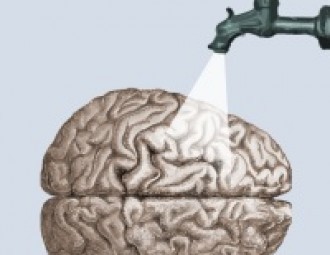Uladzimir Matskevich: Belarusan leader sensed a possibility of manipulating Kremlin

Latest Lukashenka’s statements are a mix of personal offence and desire to get more from the failing Russia.
Aliaksandr Lukashenka changed his habit of praising progress and pleasures of Belarus-Russia fraternity at the traditional press conference for the representatives of Russian regional media, where he sharply criticized Russian foreign policy actions, allied relations, and even recalled Belarusan Smolensk, Bryansk, and Pskov.
Why did Lukashenka need all these unexpected turns hostile to Russia? And what audience are they aimed at?
- I don’t like analyzing Lukashenka’s remarks, as they are often situational, irrational, and designed to somehow affect the public, not to say something substantial. It is manipulation, - noted Uladzimir Matskevich, the head of the Board of the International Consortium “EuroBelarus”, in the interview with the “EuroBelarus” Information Service. – I find this to be the right way of interpreting his words. I.e. he wanted to influence the people sitting in front of him and those who are about hear his words – Russian and Belarusan societies, as well as the official Kremlin. Judging from his words, with Russia’s weakening, Belarus will be pursuing increasingly autonomous and independent policy. This is a certain suggestion for Kremlin to make concessions and do not resist to requests and demands coming from Minsk.
According to Matskevich, there was “a certain personal offence seen in his words”.
- For instance, according to Lukashenka, power is one of the main qualities of a governor, president, and ruler. Presence of weapon also defines power. Having serious weapons, Lukashenka would be much more self-confident. So weapon is only needed to demonstrate his power. Lukashenka is offended by Russia’s reluctance to give him weapon; and that is where this personal offence breaks through. Moreover, he is also sending a certain signal to Russia that is losing its strength now. So Lukashenka felt that now he can dictate his own terms, and everything he said about Belarusan Smolensk, Bryansk, and Pskov means that he will set certain demands, not that he is going to return these territories. There is hardly any hope that these demands will serve to Belarus’ national interests; they are more likely to satisfy the interests of the regime. And of course, by getting regular bonuses from Russia, Lukashenka will become able to prepossess the electorate.
- Upon hearing about Smolensk and Bryansk a wave of enthusiasm and joy swept across the social networks. Does it mean that the belief in Lukashenka’s pro-national reorientation is so strong?
- I see two sides here. First, Lukashenka decided to use the moment and attract those voters who were traditionally against him and under the influence of opposition leaders. Now, when the power of opposition leaders has weakened, Lukashenka is winning this part of voters by mere rhetorical maneuvers, so he feels much more calm at the election.
Secondly, when opposition electorate falls under the influence of not very smart and active leaders it becomes even more naïve, marginal, easy to manipulate and quick to degrade. And in our case we see that the infantilism and naivety is revealed in the fact that the protest part of the population might easily listen to anyone. However, only the smaller, less clever part of protest electorate approves of such Lukashenka’s statements.
I would take a broader look on this problem, considering it to be degradation of Belarusan middle class and those people who belong to the cultural elite of the Belarusan society. This tendency has been visible and is very dangerous. If we fully take over the populism, credulity, thoughtlessness of some popular bloggers and journalists, our society will become even more compliant to propaganda actions. And in the situation of information war, we see that everyone can do anything with such society. In Russia critically thinking people fall under the influence of propaganda, so we can only imagine what total propaganda might do with the Belarusan society. It can turn the society in any direction; and this is frightening. Having no external enemies, dictatorial regimes often find internal enemies to strengthen their power. Russian situation demonstrates that. If earlier Russia had been copying undemocratic maneuvers and actions of the Belarusan regime, lately Kremlin bypassed its teacher and is acting much more roughly, but at the same time much more effectively. And here it is Lukashenka who has to learn new methods.
Thus, Putin declares NGOs to be a fifth column, foreign agents, by this stigmatizing them as “enemies”. For now public opinion in Russia was set against Ukrainian society, not against NGOs. But if Lukashenka learns this method from Putin, he might easily set his aggression against some internal “enemy”: members of NGOs, political parties or even Belarusan speakers. I hope nothing like this happens, but I find it necessary to give notice of it in advance.
-
03.01
-
07.10
-
22.09
-
17.08
-
12.08
-
30.09








































